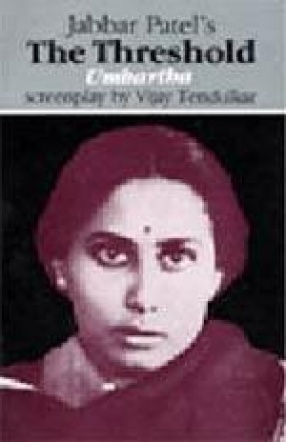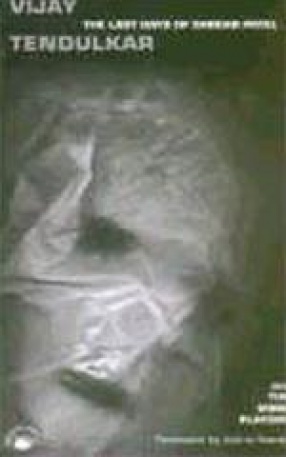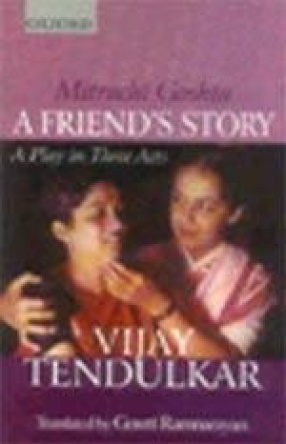
Showing all 5 books




This collection brings together for the first time, award-winning playwright Vijay Tendulkar’s best-known plays, translated from Marathi. It includes a preface by Tendulkar on his induction into the art of writing plays, and a piece on what he considers to be the essential skills of a playwright. The introduction by Samik Bandyopadhyay discusses the role of power in Tendulkar’s plays. The plays deal with the complexity of human relationship. Each contains a ...

In his fourth film, theatre and film director Jabbar Patel shows a woman growing into independence, and growing beyond the limits so gently and yet so firmly imposed by an apparently liberal and progressive family. A woman's film, it builds its case with scientific precision and economy in a moving and convincing manner. Patel's film tells a straightforward story, uses songs for entertainment, and gets its point across unobtrusively.

Vijay Tendulkar is renowned as one of India's most adventurous and important playwrights. Few however know he is responsible for the screen-plays of landmark films like Aakrosh, Nishant and Ardhasatya. This book contains two of his film-scripts. The Last Days of Sardar Patel is the original film-script for Ketan Mehta's film, Sardar. Tendulkar provides a unique perspective on the man now mistakenly regarded as a communalist who wanted India to be a Hindu state. ...

A Friend’s Story (Mitrachi Goshta) is a stark commentary on the nature of romantic love—both heterosexual and homosexual. In the world of Mitra, love has no redeeming qualities; it is a game of power that reduces players to bestial levels. Its expression, the sexual act, is no more than a sordid transaction. With the same brilliance that characterized his earlier plays like Ghashiram Kotwal, and Silence! The Court is in Session, Tendulkar here engages the ...

Vijay Tendukar, best known for his emotionally charged protest plays and filmscripts, chooses a different genre for Ghasiram Kotwal—that of the musical historical. Set in Maharashtra in the late eighteenth century, it recounts a power game played out in terms of caste ascendancy in politics. The work draws on several Maharashtra folk styles, and has an obvious relevance in the context of individuals playing the game of politics, taking advantage of situations, ...
